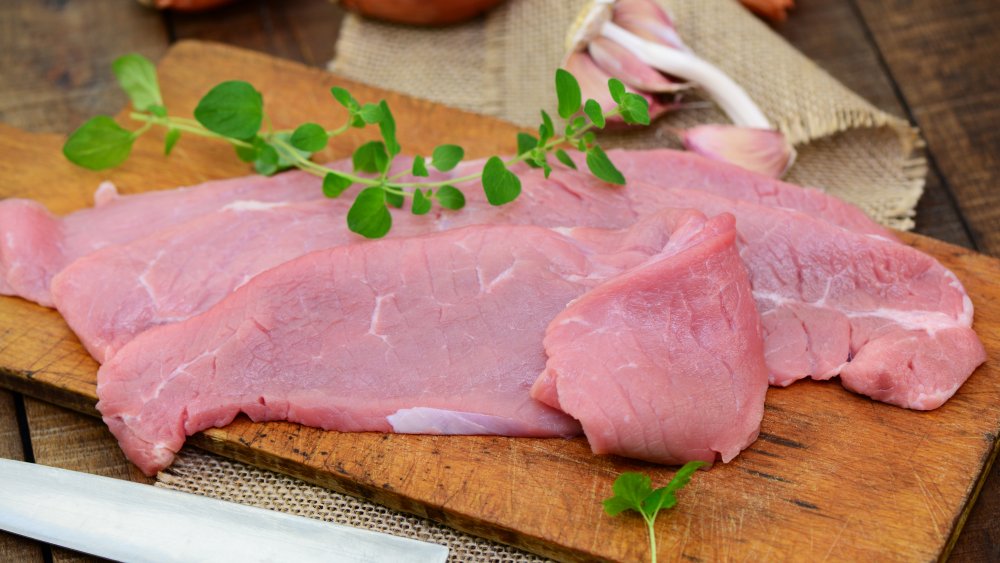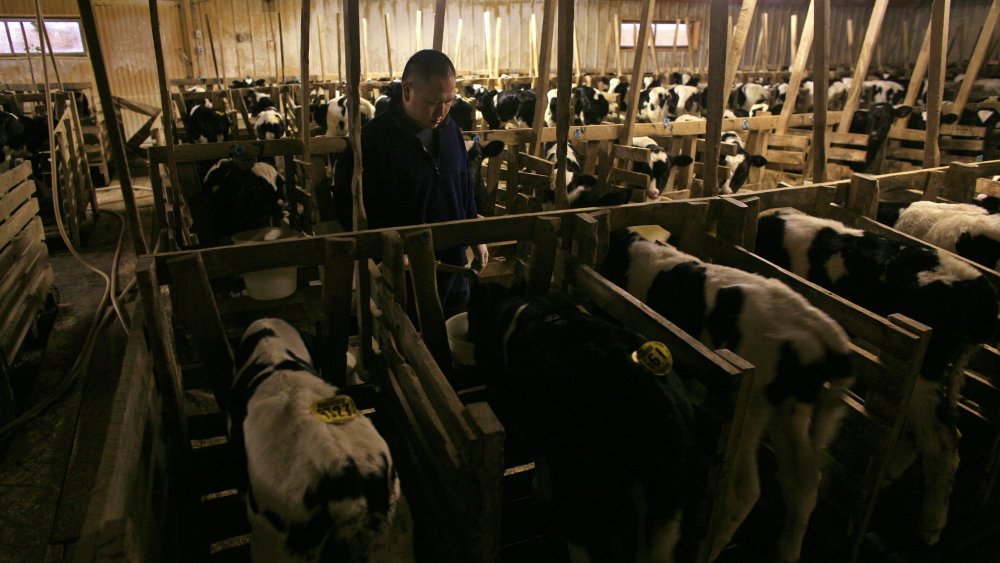The Reason You Need To Steer Clear Of Veal At A Fancy Restaurant
Fancy restaurants might be potentially nerve-wrecking labyrinths of potential dining etiquette mistakes, but if you know how to navigate their world, they're often gateways to a delicious dining experience. Visiting one is also a perfect opportunity to try the kind of food you'd otherwise never get around to eating. Maybe your next visit to a high-end restaurant is the time you finally decide to try expensive lobster, or perhaps wagyu beef, or one of the many bizarre foods you need to try before you die. There are some foods that you should never, ever eat in a high-end restaurant, however — and they're not always the ones you'd think. It's easy to advise against genuinely scary foods that people want to eat, but you wouldn't necessarily realize that you'd also do well to avoid ... the humble veal.
Yes, it turns out that the delicious, tender, pale veal, of all things, hides secrets that may make you consider eyeing other items on the menu. But what's so terrifying about this comparatively vanilla meat? Let's take a look at the reason you need to steer clear of veal at a fancy restaurant.
Veal is made in a pretty cruel way
The reason you should avoid veal is simple: It's a food produced through extreme cruelty (via Prevention).
Veal is famous for being very pale and tender compared to beef, and the way this is achieved is pretty creepy. Per ThoughtCo, all male dairy calves and about 50 percent of the females become veal at the end of their lives, which incidentally last no longer than eight to 16 weeks. The meat's tenderness comes from more than simple youth, too. Veal calves are confined in cage contraptions called veal crates, which are too small for them to even turn around (and fortunately outlawed in some states). On occasion, their movement is further limited with tethers. The calves are also kept anemic by feeding them a synthetic milk formula that's lower in iron than their diet would otherwise be.
Oh, and if that's not worrying enough, there's also "bob veal," which is the meat from newborn calves — as well as "slink veal," which is made from stillborn or unborn calves. Fortunately, the latter is illegal for human consumption in the U.S. and a number of other countries.

